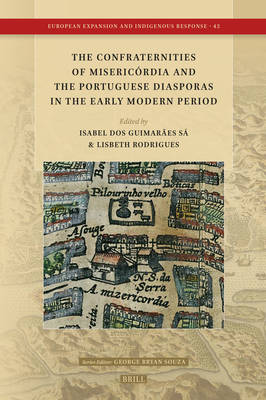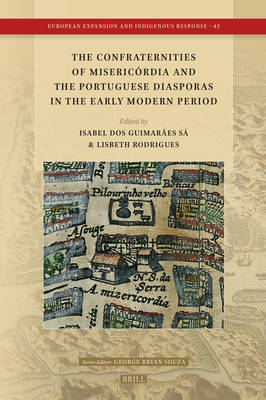
- Afhalen na 1 uur in een winkel met voorraad
- Gratis thuislevering in België vanaf € 30
- Ruim aanbod met 7 miljoen producten
- Afhalen na 1 uur in een winkel met voorraad
- Gratis thuislevering in België vanaf € 30
- Ruim aanbod met 7 miljoen producten
Zoeken
The Confraternities of Misericórdia and the Portuguese Diasporas in the Early Modern Period
€ 213,45
+ 426 punten
Omschrijving
During the early modern period, the brotherhoods of Misericórdia were established not only in the overseas territories ruled by the Portuguese, but also beyond their empire, reaching as far as the Philippines and Japan. The twelve chapters of this book examine this expansion by discussing different dimensions of the Misericórdias, such as administration, politics, charitable practices, finances, and forms of discrimination related to social status, gender, and race. Filling a critical gap in anglophone scholarship on the Portuguese Misericórdias, this work's previous absence has been criticized by scholars who believe the Misericórdias are crucial to understanding the past and present of Portuguese communities, both at home and abroad.
Contributors are: Inês Amorim, José Pedro Paiva, Lisbeth Rodrigues, Sara Pinto, Juan O. Mesquida, Rômulo Ehalt, Joana Balsa de Pinho, Andreia Durães, Maria Antónia Lopes, Luciana Gandelman, Isabel dos Guimarães Sá, and Renato Franco.
Contributors are: Inês Amorim, José Pedro Paiva, Lisbeth Rodrigues, Sara Pinto, Juan O. Mesquida, Rômulo Ehalt, Joana Balsa de Pinho, Andreia Durães, Maria Antónia Lopes, Luciana Gandelman, Isabel dos Guimarães Sá, and Renato Franco.
Specificaties
Betrokkenen
- Uitgeverij:
Inhoud
- Aantal bladzijden:
- 328
- Taal:
- Engels
- Reeks:
- Reeksnummer:
- nr. 42
Eigenschappen
- Productcode (EAN):
- 9789004547674
- Verschijningsdatum:
- 13/07/2023
- Uitvoering:
- Hardcover
- Formaat:
- Genaaid
- Afmetingen:
- 155 mm x 234 mm
- Gewicht:
- 635 g

Alleen bij Standaard Boekhandel
+ 426 punten op je klantenkaart van Standaard Boekhandel
Beoordelingen
We publiceren alleen reviews die voldoen aan de voorwaarden voor reviews. Bekijk onze voorwaarden voor reviews.







